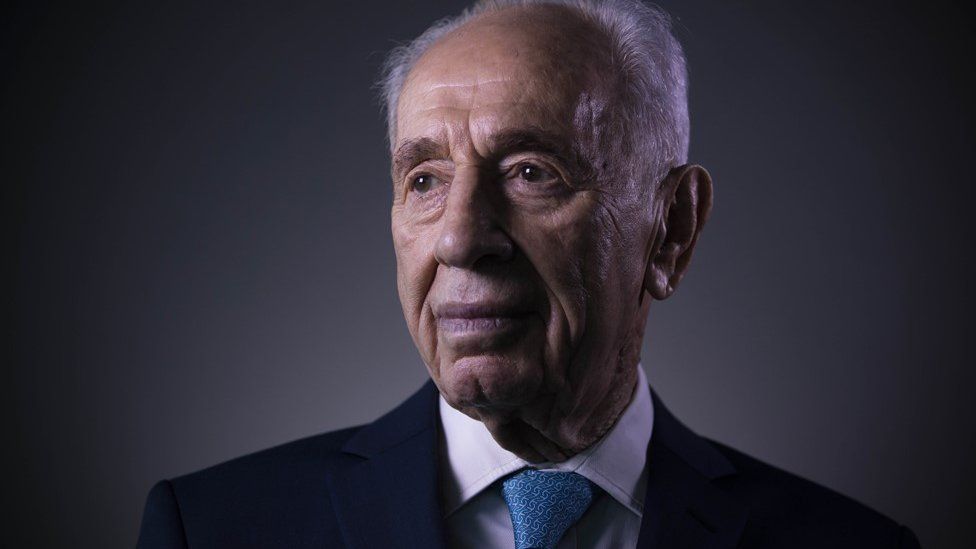Shimon Peres's death closes a chapter in Israel's history
- Published

Shimon Peres worked hard all his political life to keep Israel strong and to make it stronger.
In his early and middle years, he was a noted hawk.
In the 1970s, he promoted the building of Jewish settlements in the occupied territories.
In the 1950s and 60s, he did more than anyone else to secure a nuclear reactor and then to give Israel the tools to create its own nuclear weapons.
Peres never lost his belief that Israel had to be the strongest regional power in the Middle East.
But in the last third of his career he began believing that it was possible to make peace with the Palestinians and with Israel's other Arab neighbours.
It was only in his last few years, as Israel's president, that he became really popular in Israel.
It is a ceremonial office and the Israeli public respected his years of service.
Before that, he was liked more abroad than he was at home. Peres lost five elections.
He served as prime minister twice, but never with his own electoral mandate.
Shimon Peres was the last survivor of the political generation that established Israel in 1948.
He was the right-hand man of David Ben Gurion, Israel's first prime minister.
When Israel was fighting for its independence in 1948, Ben Gurion sent him abroad to buy weapons. It was a vital military role.
But it was obscured by Peres's later reputation as an effective political operator - an "intriguer" as he was known in Israel.
The fact that he did not wear a uniform and pick up a gun to fight in 1948 meant that Israeli voters never respected or trusted him as much as contemporaries like Yitzhak Rabin and Yigal Allon, who had been famous commanders in the independence war.
By the early 1990s, Peres became convinced that it was possible to make peace with the Arabs.
He had a vision of a new Middle East, bound together in peace through economic co-operation.
He helped broker the Oslo accords in 1993 between Israel and the Palestinians, and won the Nobel Peace Prize alongside Rabin and Yasser Arafat.
Rabin paid with his life for Oslo when a Jewish extremist assassinated him in 1995.
Peres succeeded him as prime minister. He would have won a snap election but decided instead to establish his prime ministerial credentials.
But in 1996 he launched an ill-advised war in Lebanon and then lost, by a narrow margin, to Benjamin Netanyahu.
When Oslo was signed, Shimon Peres and many other Israelis - and Palestinians, and others as well - believed the Middle East was on the cusp of radical change. A new peaceful future loomed.
But Oslo failed. Shimon Peres never abandoned his faith in a two-state solution, an independent Palestine alongside Israel. But many others did.
In the end, he died without achieving peace.
But Peres was a remarkable man, a tireless politician, a statesman who made his last speech days before his stroke.
His death closes a chapter of Israel's history.
In 1934, Shimon Peres arrived as an 11-year-old immigrant in what was then mandatory Palestine, ruled by the British.
He died in Israel, a country full of remarkable achievements - that is in itself a remarkable achievement.
His long career had plenty of dark moments, but Shimon Peres goes to his grave as one of the greatest of Israel's founders and statesmen.
- Published28 September 2016
- Published28 September 2016
- Published28 September 2016
- Published3 August 2013
- Published13 August 2013